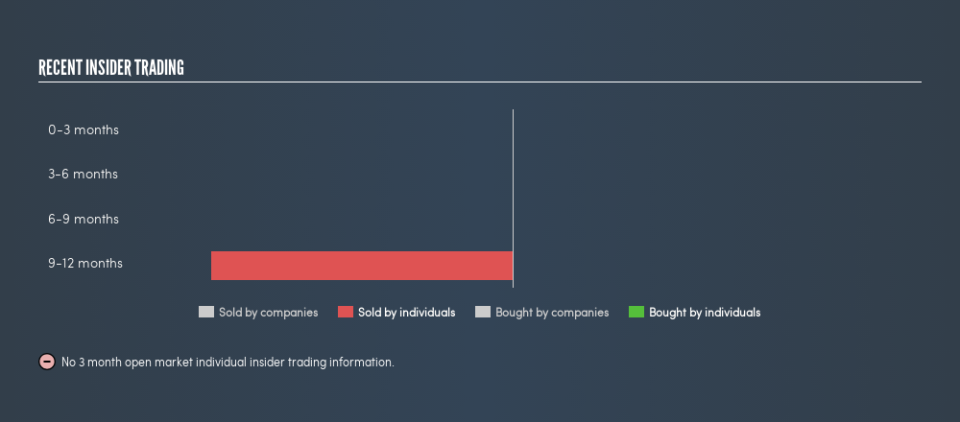Are Insiders Selling Input Capital Corp. (CVE:INP) Stock?

We often see insiders buying up shares in companies that perform well over the long term. The flip side of that is that there are more than a few examples of insiders dumping stock prior to a period of weak performance. So shareholders might well want to know whether insiders have been buying or selling shares in Input Capital Corp. (CVE:INP).
What Is Insider Buying?
It is perfectly legal for company insiders, including board members, to buy and sell stock in a company. However, rules govern insider transactions, and certain disclosures are required.
Insider transactions are not the most important thing when it comes to long-term investing. But it is perfectly logical to keep tabs on what insiders are doing. For example, a Columbia University study found that 'insiders are more likely to engage in open market purchases of their own company’s stock when the firm is about to reveal new agreements with customers and suppliers'.
View our latest analysis for Input Capital
Input Capital Insider Transactions Over The Last Year
In the last twelve months, the biggest single sale by an insider was when the Director of Finance, Jamie Burgess, sold CA$193k worth of shares at a price of CA$1.00 per share. We generally don't like to see insider selling, but the lower the sale price, the more it concerns us. The silver lining is that this sell-down took place above the latest price (CA$0.78). So it may not shed much light on insider confidence at current levels. The only individual insider seller over the last year was Jamie Burgess.
You can see a visual depiction of insider transactions (by individuals) over the last 12 months, below. By clicking on the graph below, you can see the precise details of each insider transaction!
If you like to buy stocks that insiders are buying, rather than selling, then you might just love this free list of companies. (Hint: insiders have been buying them).
Insider Ownership
For a common shareholder, it is worth checking how many shares are held by company insiders. A high insider ownership often makes company leadership more mindful of shareholder interests. Insiders own 7.3% of Input Capital shares, worth about CA$3.7m, according to our data. But they may have an indirect interest through a corporate structure that we haven't picked up on. We do generally prefer see higher levels of insider ownership.
So What Do The Input Capital Insider Transactions Indicate?
It doesn't really mean much that no insider has traded Input Capital shares in the last quarter. The insider transactions at Input Capital are not inspiring us to buy. And we're not picking up on high enough insider ownership to give us any comfort. Along with insider transactions, I recommend checking if Input Capital is growing revenue. This free chart of historic revenue and earnings should make that easy.
Of course, you might find a fantastic investment by looking elsewhere. So take a peek at this free list of interesting companies.
For the purposes of this article, insiders are those individuals who report their transactions to the relevant regulatory body. We currently account for open market transactions and private dispositions, but not derivative transactions.
We aim to bring you long-term focused research analysis driven by fundamental data. Note that our analysis may not factor in the latest price-sensitive company announcements or qualitative material.
If you spot an error that warrants correction, please contact the editor at editorial-team@simplywallst.com. This article by Simply Wall St is general in nature. It does not constitute a recommendation to buy or sell any stock, and does not take account of your objectives, or your financial situation. Simply Wall St has no position in the stocks mentioned. Thank you for reading.

 Yahoo Finance
Yahoo Finance 
